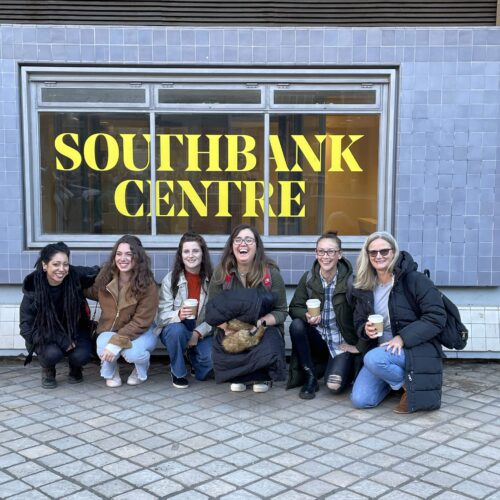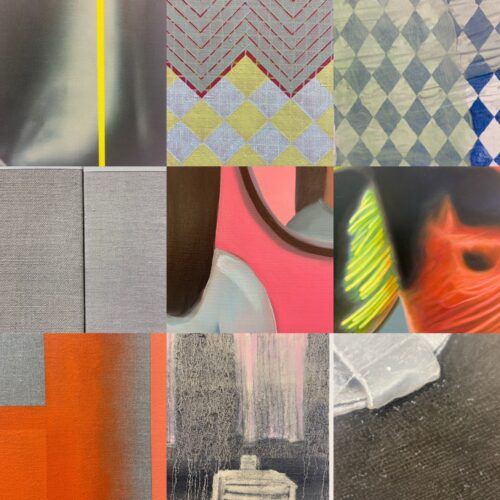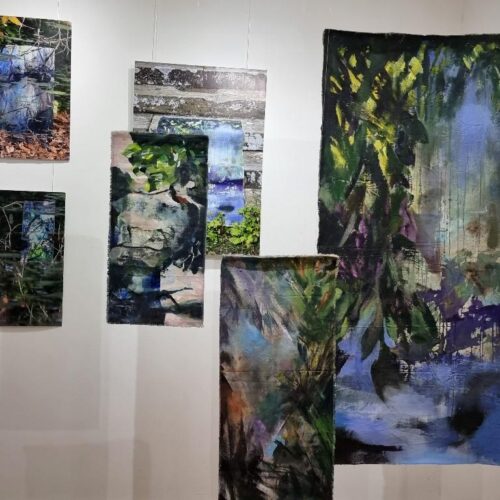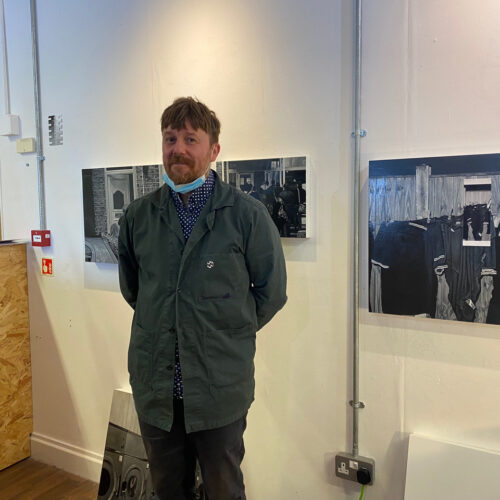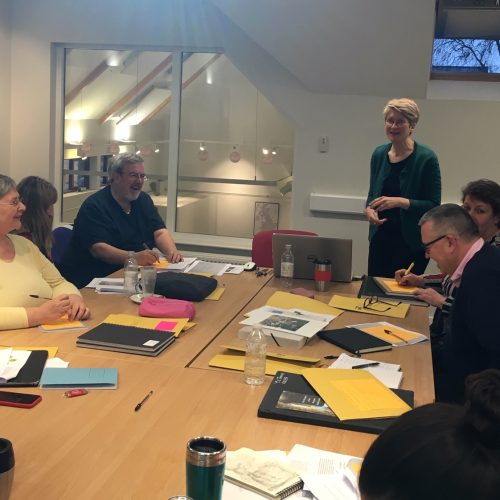
Study event review: OCA East of England
25 January 2020: A workshop run by Liz Monahan on Cultivating a Reflective Practice
Liz is a figurative artist and teacher of drawing at the Anteros Arts Foundation in Norwich. Her work attempts to “express something of the ambiguous nature of intimacy, emotion and our place in the world.” More can be found about Liz and her work at
https://www.lizmonahan.co.uk
The day started by looking at what reflective practice means and how it can be embedded in effective creative practice and development. We discussed its potential for developing practical strategies, capturing feelings, recognition of learning, how it focuses and provides purpose and gives meaning to our experiences.
We also discussed what good reflective practice involves. In learning to pay attention to the work and to ourselves, identifying assumptions and challenging them, noticing patterns of interest and behaviours that we could either challenge or exploit. Reflective practice is an active process requiring thought, analysis and discipline, rather than being fleeting, idle and passive. It captures reflection in a formal way, usually written but sometimes pictorially and is completed regularly as a systematic and deliberate act of representing ones thoughts.
For creative work, it enables us to stop and make sense of what we’re learning; we’re able to create links or step back and see the larger picture. By writing down our reflections we integrate our learning and it becomes personalised and we move towards taking ownership of our work. Reflective practice improves creative effectiveness by increasing self-awareness, improving decision making by developing judgement and supports risk taking. Risk taking is important for growth and innovation and reflection provides evidence to support trust in oneself and one’s work.
After doing some quick writing activities we moved on to looking at the Gibbs Reflective Learning Cycle which can be used as a framework to start writing. It starts with a description of the work or event, and asks you to write about what you were thinking and how you were feeling. The next step is to evaluate what was good and what was bad and to analyse the situation and come to a conclusion. Out of this information you are asked to develop an action plan. This was a useful structure to get started with reflective writing but was flexible enough to be adapted with more experience. We used the structure to create some reflective writing and discuss the piece with partners.
We moved on to look at and discuss examples of different approaches to information gathering and analysis, there were a wide variety of approaches that can be mixed and matched. Extracts from Liz’s reflective journal were available and it was noticeable how many questions were generated by the writing, all providing new areas for research, approach or contemplation.
- Vision Boarding, Scrap-booking (Pinterest), mood boards
- Mind maps
- Writing lists
- Creative writing
- Interview/Dialogue
- Annotated Sketchbooks
- Blogs
We finished with some guidelines for developing and embedding reflective practice into our own creative practice.
- Allow time
- Make it a regular habit
- Pay attention
- Slow down
- Approach it without judgement and self-criticism
- Experiment with different approaches to see what works for your practice.
The feedback was very positive from the students attending and I would happily recommend the workshop to other OCA students and student groups. Reflective practice is one of the key foundation tools in our learning logs and a valuable tool in creative practice.
|
|



